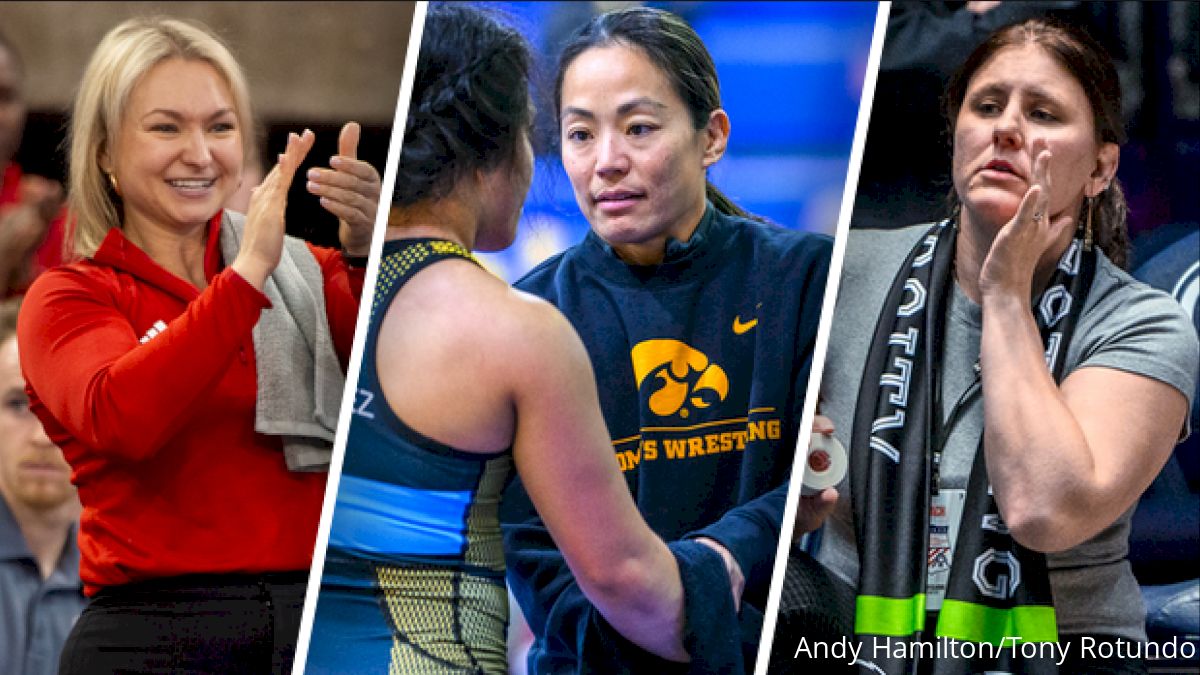Women's Freestyle Takeaways From The 2024 NWCA Coaches Convention
Women's Freestyle Takeaways From The 2024 NWCA Coaches Convention
Changes are coming in women's college wrestling. Here is what you need to know.

The National Wrestling Coaches Association held its annual coaches convention in Ponte Vedra, Florida, on July 24-29. Here are takeaways that will affect women’s college wrestling for the upcoming and future seasons.
We Are The Champions
The 2025 National Collegiate Women’s Wrestling Championships will be held at Xtream Arena in Coralville, Iowa, on March 7-8. It will likely be the final year of the NCWWC designation before NCAA Championship status for the 2025-26 season.
That means decisions for women’s freestyle wrestling will be in the hands of the NCAA as it charts a course for the fastest-growing high school sport in America. The NAIA division adopted women’s freestyle wrestling as a championship sport on April 9, 2022.
What Does That Mean For Women’s College Wrestling?
It means that women’s freestyle wrestling can set a new standard and do different things. Every NCAA team can currently send a maximum of 15 wrestlers to the National Collegiate Women’s Wrestling Championships while NAIA can send 12.
Each NCAA team can send a maximum of 15 wrestlers to regionals and all 15 can qualify for the national championships by placing in the top four. However, there is a maximum of two per weight. A team that qualifies all 15 would have a representative at all 10 weights plus an additional five weights.
It’s not uncommon to have a team vs team match-up in regional or national tournaments, including the finals.
It could stay at 15 national qualifiers when the NCAA takes over.
Or, it could move to 10 qualifiers (one per weight).
Or 12.
Or 13.
This is a new sport that will create its direction from scratch.
Staying at 15 provides an advantage for larger and more established programs, as they can accumulate talent and still qualify for nationals.
Smaller schools would benefit from 10 qualifiers for the opposite reason since programs will be forced to decide on one wrestler per weight. A team with three or four quality wrestlers in a particular weight class won’t be able to send multiple wrestlers to nationals.
More schools would be represented at the national tournament under the 10-qualifier scenario but some of the nation's best will be on the sidelines.
Something to consider is that NAIA programs will have an inherent recruiting advantage if the NCAA only offers 10 national qualifiers. NAIA coaches can offer multiple spots on the roster for nationals if that scenario plays out.
Twelve qualifiers could appease both sides and wouldn’t give the NAIA division a recruiting advantage over the NCAA.
That could drive decisions once the NCAA takes over.
The 2025 National Collegiate Women’s Wrestling Championships will offer 32 national qualifiers (top four at each weight class from eight regional tournaments), up from 24 last season. There’s no indication if that number will stay the same or change for the 2026 season.
What does this mean for Division III programs?
There are currently 97 NCAA schools that offer women’s wrestling. Here’s a breakdown by division.
D1: 4
D2: 31
D3: 62
The National Collegiate Women’s Wrestling Championships includes schools from every division. That could change during the 2026-27 season if Division III splits off to host a championship since it has enough schools.
That could mean an NCAA championship for Division I and II programs (athletic scholarships) and one for Division III programs (no athletic scholarships). A Division III women’s division for the 2026 National Duals was also discussed.
This marks another evolution for women’s wrestling. All schools from every division competed at the same national tournament beginning in 2004 until the NAIA hosted an invitational championship in 2019. The following chart of team champions shows the progression.
Women's College National Team Champions
Are More Division I Women’s Programs On The Way?
Lehigh's club team aspires to become a Division I program, but there is no timeline for this transition. The Mountain Hawks hired Brazel Marquez as its club coach and she recruited top high school talent to join her in Bethlehem, Pennsylvania. A move to D1 designation would be a positive next step for women’s college wrestling.
This is an interesting time for Division I college athletics with revenue-sharing measures and roster caps for all sports. Several D1 schools offer women’s club programs so a transition is always possible. Patience is key as administrators navigate the ever-changing landscape of college athletics.
Weights Are Changing
Here is a refresher on the new college weights for next season.
The Waiting Game
The NAIA Championships are March 14-15 at a yet-to-be-determined location. It will not be held in Jamestown, North Dakota, after serving as the host site since 2019. Wichita, Kansas, and Oklahoma City are possibilities.
Trailblazers Recognized
The National Wrestling Coaches Association recognized the inaugural honorees for the Trailblazer Awards, those who have championed the sport of women's wrestling in the collegiate space. Gary Abbott, Clarissa Chun, and Ashley Flavin were recognized as this year’s winners.
Abbott, director of communications for USA Wrestling, is at the forefront of women’s wrestling coverage and is widely recognized as the leading national media voice. He has covered every major women’s college and international tournament since 1989.
Chun, a 2012 Olympic bronze medalist, is the head coach at the University of Iowa — the first Power Five Division I women’s wrestling program and the 2024 NCWWC team champions. She was the first girls’ high school wrestling state champion in Hawaii and the United States in 1998.
Flavin is the head coach at Life University and was the first woman to lead a national team title when the Running Eagles won the 2022 NWCA National Duals. Flavin has produced two team national championships, five individual national champions, and more than 30 All-Americans.